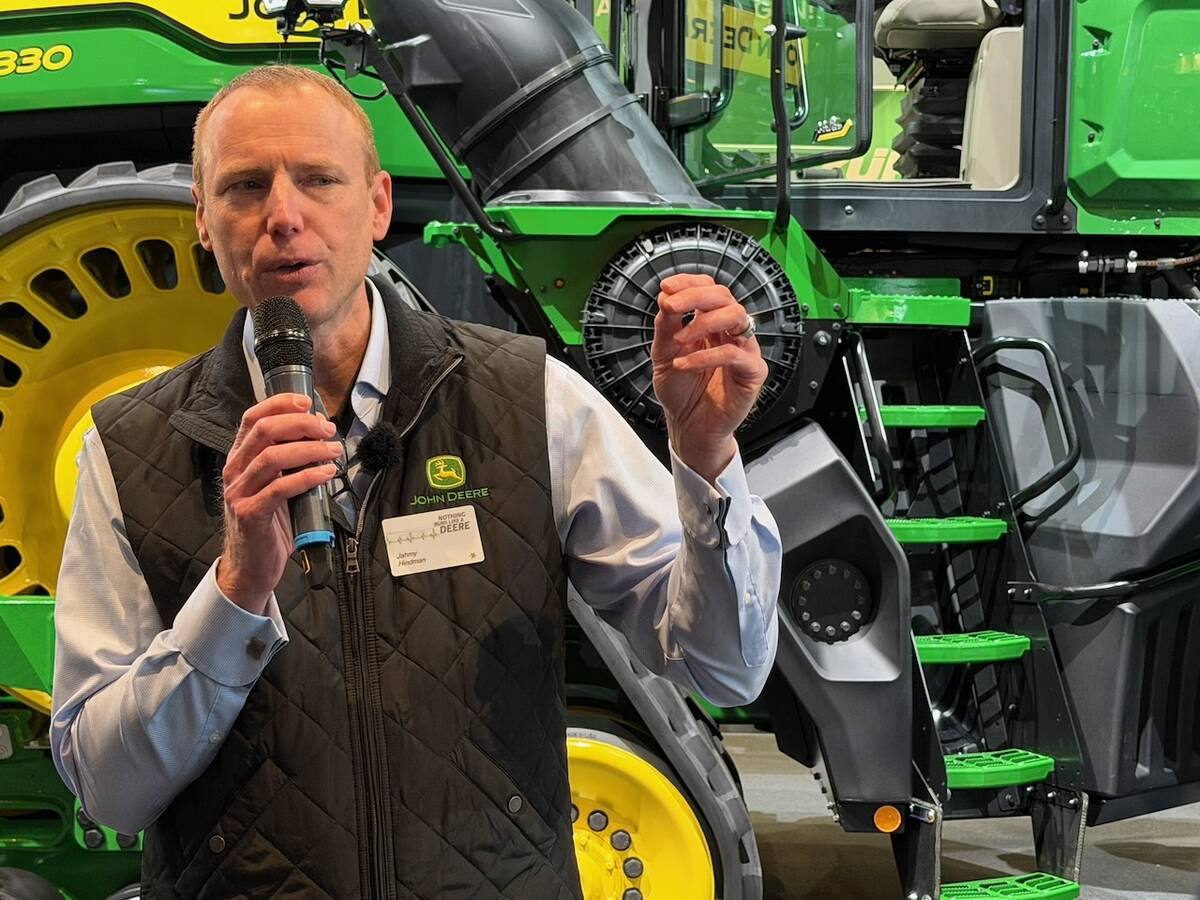Farmers of North America says easing fund withdrawals would help projects such as its proposed nitrogen plant
Farm groups are pushing for changes in how producers can spend their AgriInvest money.
The federal program is designed to help farmers mitigate small income declines and allow for investments to mitigate risk or improve income.
However, some farm groups say the way the program is designed actually impedes investment.
Farmers of North America was scheduled to meet with federal Agriculture Minister Lawrence MacAulay this week to discuss how the program could be tweaked to facilitate savings and investment.
“It kind of has that rainy day fund effect, but it doesn’t really do much to create an incentive for farmers to use it to maximize future revenue,” said Bob Friesen, FNA’s vice-president of government relations.
Read Also

Agritechnica Day 1: New equipment, automation steps and Canada’s moment
Canadian companies have a larger-than ever presence at Agritechnica 2025. Also, farm automation spreads across many farm equipment companies.
He is a former president of the Canadian Federation of Agriculture, which has taken a similar stance on the issue.
In a document outlining its policy recommendations for the next agriculture policy framework in 2018, the CFA makes its case for changes to AgriInvest.
“The mandatory initial withdrawal of all taxable government contributions limits the capacity for producers to invest in the sector due to producers limiting their withdrawals to those periods that will not result in increased taxation,” states the document.
“While this does encourage maintenance of a rainy day fund, these same tax considerations are a barrier to proactive investment of AgriInvest funds.”
FNA’s emphasis on AgriInvest comes at a time when it is looking for more farmer dollars that could potentially be invested in its $2.2 billion ProjectN nitrogen fertilizer plant planned for Belle Plaine, Sask., and its related Genesis Grain and Fertilizer distribution super centres.
Friesen said there would have to be eligibility requirements for investments, such as projects that have bankable feasibility studies and a minimum number of farmer investors.
Eligible projects could include short-line railways, producer car loading sites, farmer-owned grain terminals, processing plants and fertilizer plants.
“It could provide a considerable stimulus to agriculture and we believe would fall right within what the federal government is trying to achieve,” he said.
Producers can deposit up to one percent of their allowable net sales into an AgriInvest account annually and receive a matching contribution from federal and provincial governments.
AgriInvest accounts have two components: the farmer investment in Fund 1 and the matching government contribution in Fund 2.
Withdrawals are taken from Fund 2 first. Those dollars are taxable upon removal. Only after Fund 2 has been depleted are farmers allowed to withdraw from Fund 1. Those dollars are non-taxable.
The idea is that farmers withdraw money in bad years when the taxes would be minimal, but Friesen said the program’s structure is a barrier to investment.
“Farmers aren’t going to withdraw AgriInvest money if they have to pay tax on it,” he said.
FNA estimates that the Fund 1 portion of AgriInvest accounts contain $900 million, and about 60 percent of that is located in Western Canada.
Easing the restrictions on accessing the money in Fund 1 could free up a lot of potential investment dollars for FNA’s fertilizer projects and other similar farmer-driven ventures.
Friesen said work is still ongoing on the ProjectN fertilizer plant.
“We’re on the verge of submitting a technical project permit,” he said.
The Saskatchewan government will review that permit, which includes a site plan, road infrastructure and environmental studies.
“They’ve already assured us that they will turn that around in under 90 days,” said Friesen.
Then comes the heavy lifting, which is raising farmer equity, finding a strategic partner and arranging debt financing for the $2.2 billion project.
FNA has raised $15.3 million in farmer equity for the first distribution centre in Belle Plaine. The company is finalizing debt financing for that project and has re-tendered the construction contract.
“We’re basically ready to put shovel in the ground,” he said.
sean.pratt@producer.com















